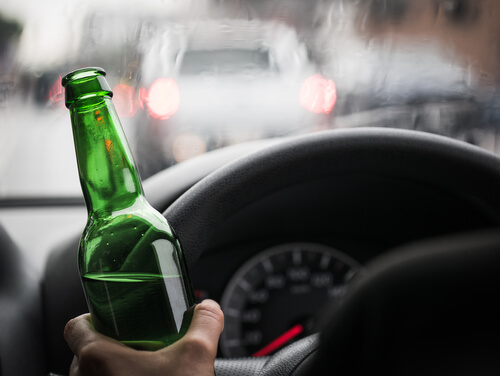Driving under the influence is a serious legal issue with life-altering consequences for drivers and others on the road. This post examines the risks of impaired driving, the legal repercussions, and how laws vary across jurisdictions, highlighting the importance of responsible driving.
Defining Operating Under the Influence
Driving under the influence, commonly known as DUI, and sometimes referred to as DWI (driving while intoxicated), means operating a motor vehicle after consuming substances that affect your ability to drive safely. The substances involved often include alcohol, but they can also be illicit drugs, prescription medications, or even over-the-counter drugs that impair driving skills.
All states in the U.S. have legal limits, which are typically measured by blood alcohol concentration (BAC). The standard BAC limit for drivers aged 21 or over is 0.08 percent. For commercial drivers and individuals under the legal drinking age, the BAC threshold is even lower or zero tolerance.
How DUI Laws Work
Uniformity and Variation Across States
While every state takes DUIs seriously, the severity of penalties, the specifics of what constitutes impaired driving, and the legal process can vary. Some states impose mandatory jail time and hefty fines for first-time offenders, while others focus on rehabilitation programs and license suspensions.
Arrest and Prosecution
When law enforcement suspects a driver is under the influence, they may use field sobriety tests, breathalyzers, or blood tests to determine impairment. Refusing these tests can itself lead to legal consequences, including automatic license suspension due to “implied consent” laws in most states.
Once charged with DUI, the accused will typically face several stages of legal proceedings, which can include arraignment, administrative license hearings, and criminal trials. The outcome depends on the circumstances, prior history, and how effectively the case is defended. Working with an experienced attorney, such as an auto accident lawyer like those in Utah, can significantly impact the results of the case.
Key Legal Consequences for DUI Offenders
Criminal Penalties
The legal system imposes a range of criminal penalties, which may include:
- Fines often ranging from hundreds to several thousand dollars.
- Jail time for repeat offenders or when aggravated circumstances are present, such as causing injury while driving under the influence.
- Probation with strict requirements, including regular check-ins, mandatory counseling, and more.
Driver’s License Suspension and Revocation
One of the most impactful penalties for a DUI conviction is losing the privilege to drive. This suspension can last from a few months to several years, particularly for repeat offenses. Some offenders may be allowed to install ignition interlock devices in their vehicles, which prevent the engine from starting until a sober breath sample is provided.
Civil Liability
If driving under the influence leads to property damage, injuries, or fatalities, the driver can face lawsuits and significant civil liability. Victims may seek compensation for medical costs, lost wages, emotional distress, and punitive damages.
Long-Term Consequences
A DUI conviction can have lasting effects beyond immediate sanctions:
- Insurance premiums typically skyrocket after a DUI.
- Employment difficulties may arise, especially for jobs that require driving or have strict standards regarding criminal records.
- Education and travel limitations can result, as some colleges and countries scrutinize applicants for DUI convictions.
Mitigating and Aggravating Factors
Not all DUI incidents are treated equally. Certain circumstances can aggravate the situation, leading to harsher penalties. Aggravating factors might include:
- Having an exceptionally high BAC
- Causing injury or death
- Driving with minors in the vehicle
- Multiple prior DUI convictions
Conversely, first-time offenders with no aggravating circumstances may be eligible for reduced sentences, diversion programs, or alternatives like community service and alcohol education.
Balancing Punishment and Prevention
Most legal systems strive to balance punishment for offenders with opportunities for rehabilitation and prevention. Many jurisdictions offer substance abuse education, counseling, and treatment programs as alternatives to jail, particularly for first-time or nonviolent offenders.
These approaches aim not only to reduce repeat offenses but also to address the root causes of impaired driving, such as addiction or untreated mental health issues.
Staying Responsible and Protected
The consequences of operating a vehicle under the influence are severe and far-reaching. Aside from criminal penalties and civil liabilities, DUI convictions follow individuals for years, affecting their personal and professional prospects. The best way to avoid these outcomes is simple: never drive after consuming impairing substances.
Ride-sharing, designated drivers, and public transportation are responsible alternatives if you’re even slightly impaired. If you’re taking prescription medications, consult with your doctor about their effects on your ability to drive.
Conclusion
Operating a vehicle under the influence is never worth the risk. Each year, thousands of lives are changed forever due to impaired driving incidents. Understanding the legal implications is the first step toward making safer, more responsible decisions on the road.





